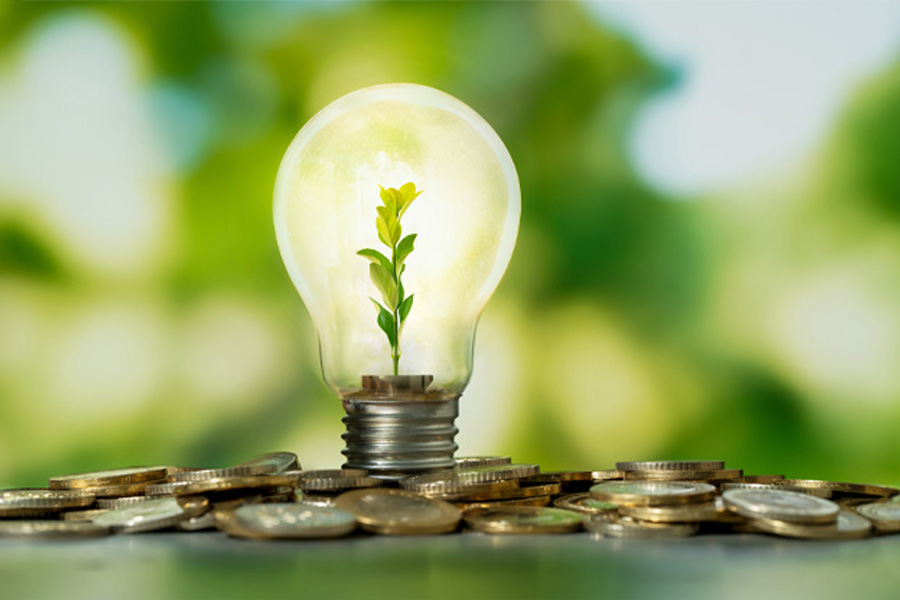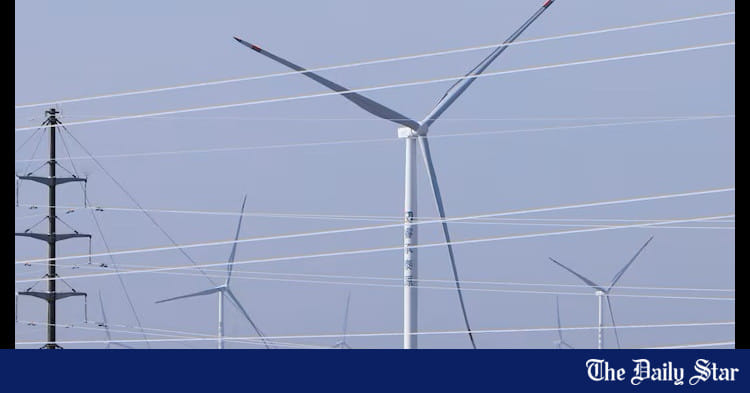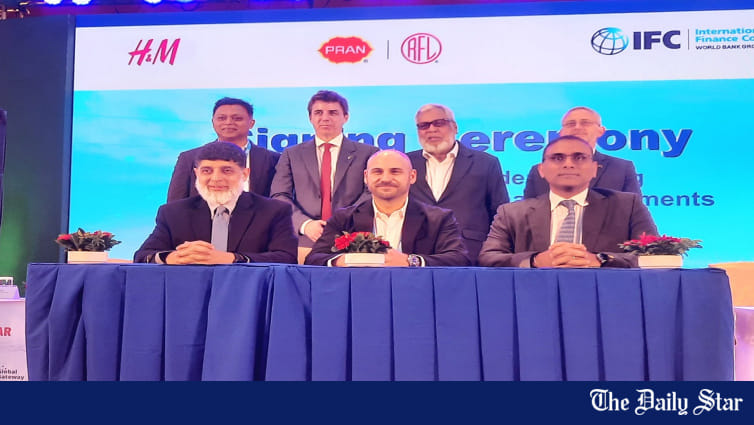- Copy to clipboard
- Thread starter
- #361
Saif
Senior Member
- Joined
- Jan 24, 2024
- Messages
- 15,397
- Reaction score
- 7,865
- Points
- 209
- Nation

- Residence

- Axis Group

Great find. It's pricelessWe in Bangladesh should not have gone into the building and commissioning of this Indian Power Station in Rampal which (while being an environmental disaster) happened only with the arm-twisting of Indian authorities to accept their loan and utilize their Indian "experts" who couldn't get jobs in India. It is the Indian govt. who became the gainer in the deal, who cannot get business deals made like this elsewhere. Lakh lanaats on the Indian boot-lickers in the AL administration and Hasina herself who could not stand up against Indian pressure because of seeking Indian help.
This type of looting is still going on in Bangladesh by Indians, both in private and public sectors, while Bangladeshi half-educated public servants and business leaders let it happen.
It may be mentioned here where this looting all started at the get-go after the 1971 debacle. The history is a sordid proof of how Indian administrations have denuded and looted Bangladesh down to skin and bones. Nanga kar dia. In any case - I have to forego some choice words I have for these looters, as it is Ramadan.
----------------------------------------------------------------------------------------
Indian Military’s Massive Looting Campaign after Bangladesh’s 1971 Liberation War : An Untold Dark Reality
Bangladesh, previously East Pakistan, was under the administration of a military regime based in West Pakistan (now Pakistan) from 1947–1971. Despite both lands situated far away from each other by a distance of 2,204 km (1369.502 miles), they were one country. One can say, it was the South Asian version of United States — Alaska.…
After the upheaval in 1971 and declaration of independence by Sheikh Mujib, Indian government led by Indira Gandhi started helping the provisional Mujibnagar Government & Mukti Bahini. As soon as the war began, India had a geopolitical motive behind their support. It was to weaken Pakistan.
India and Pakistan had been in conflict since 1947, and two Pakistan wings on both sides of India posed a significant threat to India. Thus, breaking down Pakistan was more of a plausible solution to their “pakistan problem”.
Indian Armed Forces entered the Liberation War of Bangladesh on December 3, 1971 , fighting Pakistani forces alongside Mukti Bahini forces.
Right after Bangladesh was liberated, Indian forces started their looting of arms and equipment of the Pakistani army which was surrendered on December 16, 1971.
Indian soldiers looted not only the weapons left by the Pakistanis, but also the goods of the common people. The Indian Military Forces controlled newly-liberated Bangladesh militarily until March 12, 1972, as per a “secret controversial treaty” between Indian Government & Mujibnagar Government , much to the dismay and disapproval of many Mukti Bahini (aka Bangladesh Military) officers and commanders.

Indian forces looting the weapons from Bangladeshi cantonments and camps, December 1971
Immediately after the independence of Bangladesh, while the Civil Affairs Organization of India was out to take control of the civil administration of the newly independent Bangladesh as per the same secret controversial treaty with Mujibnagar Government, its army got busy taking away the weapons and various types of goods, legitimately belonging to Bangladesh.
Indian forces raided several cantonments (in Jessore, Cumilla, Dhaka, and Chittagong, as well as in the industrial areas of Khulna), army barracks and military camps all around Bangladesh and looted weaponry and armouries located in those areas. At least four divisions of weapons, vast amount of light to heavy weapons, heavy artillery, ammunition, military vehicles, and other military equipment were taken to India.
While there were excuses provided that, “those belonged to Pakistanis and does deserve to be looted” — these excuses were obnoxious, since those weapons would now legitimately belong to Bangladesh due to their presence on Bangladeshi soil.
While excuses like that were given (under "war booty" ideas), Indian troops didn’t even spare military-areas that were controlled by Mukti Bahini (Bangladesh Military Forces) during the war either, from their looting spree.
Even Bangladeshi civilians weren’t spared. A blogger named Larry Chowdhury, who was a teenager during 1971, was among the many witnesses, who witnessed the Indian Armed Forces’ massive looting campaign, not even sparing small businesses. He interviewed several witnesses, some of them who were victims of the looting campaign themselves. He described in his memoirs that, “Indian forces were stealing and robbing from civilians and businessmen, holding them at gun point, in various parts of the country including upscale areas of Dhaka.
They looked for petty items like Ilish (Hilsha) fishes in the markets of Rajshahi or Rangpur town for almost no price. Everyone in Bangladesh knows that Hilsha is a rare commodity for the northern part of the country. But the stupid Indian Army personnel did not bother to know about the level of availability but argued to bring those for them. There were also Bengali-speaking Indians from West Bengal, who were a big part in all these. I saw this with my own eyes on December 23–31, 1971 and January 1–9, 1972 at various parts of the country. Also I saw Indian forces looting fruits, vegetables, poultry and many other products from Aricha Ghat (river port), Manikganj. However some Indian military personnel also exploited fruit sellers and forced them to sell fruits at subsidized or low prices. A fruit seller told me, ‘ It’s better that some of them at least paid me something. Many of our boats were absolutely robbed, leaving many of my fellow fruit sellers destitute’.
These looters robbed Dhaka’s New Market, Stadium Market, and Baitul Mukarram Market areas, while pointing guns at businessmen and civilians. Within a week or two, they robbed and stored Chinese single/double barrel flasks, Canadian Winchester torches (flashlights), Chinese and European suitcases/brief-cases, Chinese nail cutters, Chinese and Korean ready-made clothes (shirts, pants, etc.), foreign leather belts, radios/transistors, regular torch or transistor batteries, and numerous consumable items. The Indian looters were carrying these looted items through their Atal Jeeps and Shaktiman Trucks.“
This is the nature of the professionalism, discipline and mentality of India's mighty armed forces.
At that time, this ubiquitous and unprecedented looting carried out by the Indian forces in the newly independent country stunned even the foreigners.
The Guardian reported that the Indian troops looted heavy machinery and technical parts of the mills. In addition to the weapons of the defeated Pakistani forces and victorious Mukti Bahini forces, they looted food items(rice, vegetables, fruits, eggs, chicken, packaged food products etc.), farm/poultry animals (hens, cows, ducks), grains, jute, yarn, rubber, cotton, medicines, medical items, electronics, house materials (like bathroom fittings, television sets, radios, mirrors, refrigerators, carpets, mugs, kitchen appliances etc.), vehicles, factory machinery & mechanical parts, construction materials, private cars, boats, buses, trucks & even literal ships.
They ravaged and robbed government-owned & private mills, factories, workshops, depots, warehouses and civilian areas. The total value of the loot by Indian forces was estimated to be more than 2.2 billion USD at the time (1971–72), which in today's money is around more than 17 billion USD (around 2 trillion BDT; in Bangladeshi taka).
Martin Woollacott of the Guardian newspaper at that time reported that “Systematic Indian army looting of mills, factories and offices in Khulna area has angered and enraged Bangladesh civil officials here. The looting took place in the first few days after the Indian troops arrived in the city on December 17”. [Martin Woollacott, Indians ‘loot whole factory, The Guardian, Jan 22, 1972].
Renowned novelist from West Bengal, India, Sunil Gangopadhyay wrote in his “পূর্ব-পশ্চিম” / Purbo-Poshchim(East-West) novel,
“There are so many imported items available in Dhaka that many Indians have never seen before. Refrigerators, TVs, two-in-one, carpets, canned foods all of these began to be loaded into Indian soldiers’ trucks.”

Sector-9 Commander Major Jalil
Major Mohammad Abdul Jalil, Mukti Bahini Commander (Sector-9) wrote in his book Orokkhito Shadhinotai Poradhinota, “Trucks laden with arms, ammunition and many other valuable goods and thousands of military and civilian cars abandoned by the Pakistani forces, were taken [by the Indian army]. Even private cars [belonging to Bangladeshi civilians] were not left. I just tried to save the private cars in the [southwestern] city of Khulna after keeping those at the city’s circuit house ground [ in the care of some freedom fighters ] after requisition. Before that all cars from everywhere were passed through the border[India]. The office and quarter of the army cantonment in [southwestern district of] Jessore were totally looted. Even, the mirrors in the bathrooms and other fittings were not untouched from the drastic lootings. Peaceful pedestrians were also victimized. Such behavior of the "so-called ally" spread panic among the people. If the attitude of them turned so violent just after entering Bangladesh, what would be the situation of the country and the countrymen if they stayed here longer? What type of independence have we gained through a blood-shedding war?”
Major Jalil, who was already fed up with their looting, decided to intercept with a squad of his army force and stopped an Indian military truck loaded with looted weapons and goods in Jessore, and was able to recover the looted items from the seized truck. In a bizarre twist of fate, he was arrested for trying to defend what rightfully belonged to Bangladesh. At 11 p.m,December 31, 1971, he was arrested by Indian forces and was kept captive in an abandoned house in Jessore Army Barracks.
The abandoned house was formerly a torture-cell of Pakistani forces. There was an attempt to court-martial him as well. He is considered the first state-captive of independent Bangladesh. After staying captive for 5 months, 6 days, he was released on July 7, 1972 and was deprived of all honorary awards granted to other fellow liberation war heroes like him. And his fault ? He resisted the looting of Bangladeshi goods by Indian forces.
Major Mir Shawkat Ali, who commanded Sector 5 of the Mukti Bahini, said, “India helped us in 1971, but the Indians had taken away most of the weapons, even the military trucks the Pakistan Army had left behind in Bangladesh”. The sector commander also says that the freedom fighters “tried their best to prevent the military equipment from being taken away” but hardly succeeded. He further said, “Bangladesh Army made a lot of efforts to get back the weapons from India. The government also made some efforts to this end. Subsequently, the Indians had returned some of the weapons, a very little amount of what they had taken away, to the Bangladesh army”.

It was not only the Mukti Bahini (later Bangladesh Military) commanders who have accused the Indian army of looting out the weapons, but many civilians have also made the same accusations. Indian forces had also looted many civilian homes and towns that were nearby cantonments, army barracks and military-areas, and in many cases, Indian forces even robbed upscale residential areas in Dhaka, Khulna, Jessore and many other cities. Gold, jewelries, kitchen materials, furniture and many other house items were also taken away in loads by Indian forces, from civilians.

Indian forces in Bangladesh, December 1971
Professor Muntassir Mamoon of Dhaka University records, jointly with Jayanta Kumar Ray of India, that the Indian soldiers looted truckloads of capital goods, machinery and military hardware from a bordering district of Bangladesh by using their ‘Shaktiman trucks’.
While a young Deputy Commissioner protested against the loot to the utter disliking of an ‘irritated’ Indian Brigadier General, without much success of recovery. Mamoon and Ray observe that at a time when some so called “freedom fighters” and some Awami League members were themselves behaving like looters, it was not easy to restrain foreign soldiers. However, the looting of foreign soldiers exceeded to an unimaginable and unprecedented level, compared to the local ones.
Sekander Ali, a Bangladeshi Additional Superintendent of Police at the police headquarters at Rajarbagh in December 1971, wrote in his memoirs, “Two days after the official surrender of the Pakistan Army on December 16, I was told that I have to receive weapons and ammunition to be surrendered by the Pakistan Army, East Pakistan Rifle and Police and deposit them to the Rajarbagh armoury. An Indian major would be there with me. […] Accordingly, we received a huge amount of weapons and ammunition that included thousands of rifles, revolvers, Light Machine Guns, Sub Machine Guns, Beretta Guns and cartridges. […] It took several days to receive those weapons. […] All these arms and ammunition belong to Bangladesh. […] But, in a week or so, a few officers of the Indian Army appeared in the Rajarbagh headquarters with trucks, and asked me in an authoritative tone to open the armoury. I had no option but to comply with the order. They took away all the arms and ammunition received from the defeated Pakistani troops the other day, while I remained a helpless bystander”.
J.N Dixit, the first Deputy High Commissioner of India in Dhaka, admits that the Indian army took away the Pakistani weapons that belonged to Bangladesh and that the military advisers of the Indian government stood in the way of returning the weapons to Bangladesh. Dixit wrote, “Indian military advisers were not very enthusiastic about returning the weapons and other material captured from Pakistanis”.
In 1972, after Sheikh Mujibur Rahman returned to Bangladesh, he said at a midnight meeting at his Dhanmondi residence with his left wing ‘friend’ Mohammad Toaha and their common friend M.A Mohaimen, “India did not come forward to rescue us [during the liberation war]. They have rather grabbed my country” .
But ironically, Sheikh Mujib knew very well about the massive looting campaigns by Indian forces and the illegitimate arrest of Major Jalil, yet he hardly took any action regarding these events. Even worse, when he became the Prime Minister and formed the government of the first independent Bangladesh with members from Mujibnagar Government, he turned Bangladesh into a subservient state of India. At India’s orders, his government delayed the release of Major Jalil and Major Jalil was deprived of all honorary awards.
Even tragicomic is that, Mujib gave a “heartfelt speech” on March 12, 1972, in the farewell parade which was organized for the Indian army at Dhaka Stadium. In that farewell speech, Sheikh Mujib said to them: “We will remember you in our time of great crisis. …Although the people of Bangladesh could not extend their hospitality towards you, due to the destruction caused by the Pakistani army, they have nothing left. But they hold deep love for you. I request you to carry that love with you”. When Mujib talked about hospitality, one could only wonder, “ Why are we supposed to extend our hospitality for those who compromised our liberation war and looted us massively ?”
Regardless, in November 1972, during a visit to Delhi, the Bangladeshi defense delegation raised the issue of returning the looted weapons. They received a lukewarm response in return. Later, in response to a question from an Awami League member in the National Parliament, the Minister of Information and Broadcasting (which was Sheikh Mujib himself) said, “India has already returned a significant portion of the weapons and ammunition seized from Bangladesh, and the process of return is ongoing.” However, Mujib refused to disclose the number or amount of weapons returned “in the national interest.”
Freedom Fighter, Journalist & Writer Mohammad Zainal Abedin wrote in his book RAW and Bangladesh, “I saw large-scale loot and plunder by Indian army personnel. The soldiers swooped on everything they found and carried them away to India. They lifted everything from ceiling fans to military equipment, utensils and water taps. Thousands of Army vehicles were used to carry looted goods to India. Such a large scale plunder could not have been possible without connivance of higher Indian authorities”.
Bangladesh’s independence was compromised by India from the very beginning. This is no Newtonian equation, but a simple fact. The massive looting of weapons & goods of Bangladeshis, by Indian forces in an authoritarian manner, with little-to-no resistance from Bangladesh Government & Bangladesh Military, and the arrest of a Bangladeshi war hero in his own homeland was enough to prove that Indians compromised and infiltrated Bangladesh in several important sectors, rendering the newly liberated Bangladesh extremely vulnerable.
References:
The political economy of rural poverty in Bangladesh. Kamal Siddiqui (Dacca : National Institute of Local Government, 1982) (1st ed.)
Major (Retd) M.A [Mohammad Abdul] Jalil, অরক্ষিত স্বাধীনতাই পরাধীনতা (Orokkhito Shadhinotai Poradhinota) [Unprotected Independence is Subordination]
Shamshul Huda Chowdhury, একাত্তরের রণাঙ্গন (Eakottorer Ronangon)[Battlefield of 1971], 2nd edition
Moydul Hasan, মূলধারা’ ৭১ [Mainstream ‘71], Page: 199
Major General (Retd.) Moinul Hossain Chowdhury Bir Bikram, Silent Witness of a General: The First Decade of Independence, Page: 19–20
Weekly হক কথা (Haqq Kotha) [Voice of Truth] by Maulana Bhashani, Page: 139–140
Larry Chowdhury, “What India did to the nascent Bangladesh immediately after December 16, 1971?” , September 1, 2004.
Mohiuddin Ahmed, জাসদের উত্থান পতন: অস্থির সময়ের রাজনীতি (Jashoder Utthan Poton: Osthir Shomoyer Rajneeti) [Rise and Fall of JASAD: Politics of an Unstable Time], Page: 82–83
Pinaki Bhattacharya, স্বাধীনতা-উত্তর বাংলাদেশ প্রথম খণ্ড (Shadhinotar-uttor Bangladesh Prothom Khondo)[ Post-Independence Bangladesh (Volume 1) ]; Fourth Edition, August 2021, Chapter 3, Page 44
Muntassir Mamoon and Jayanta Kumar Ray, Inside Bureaucracy: Bangladesh
Sekander Ali, আমার পুলিশ- জীবন (Amar Police Jibon) [My Police Life]
J.N Dixit, Liberation and Beyond: Indo-Bangladesh Relations
Mohammad Toaha, স্মৃতিকথা (Smritikatha) [ Memoirs ]
Bangladesh Observer*; June 18, 1974
Mohammad Zainal Abedin, RAW and Bangladesh

















